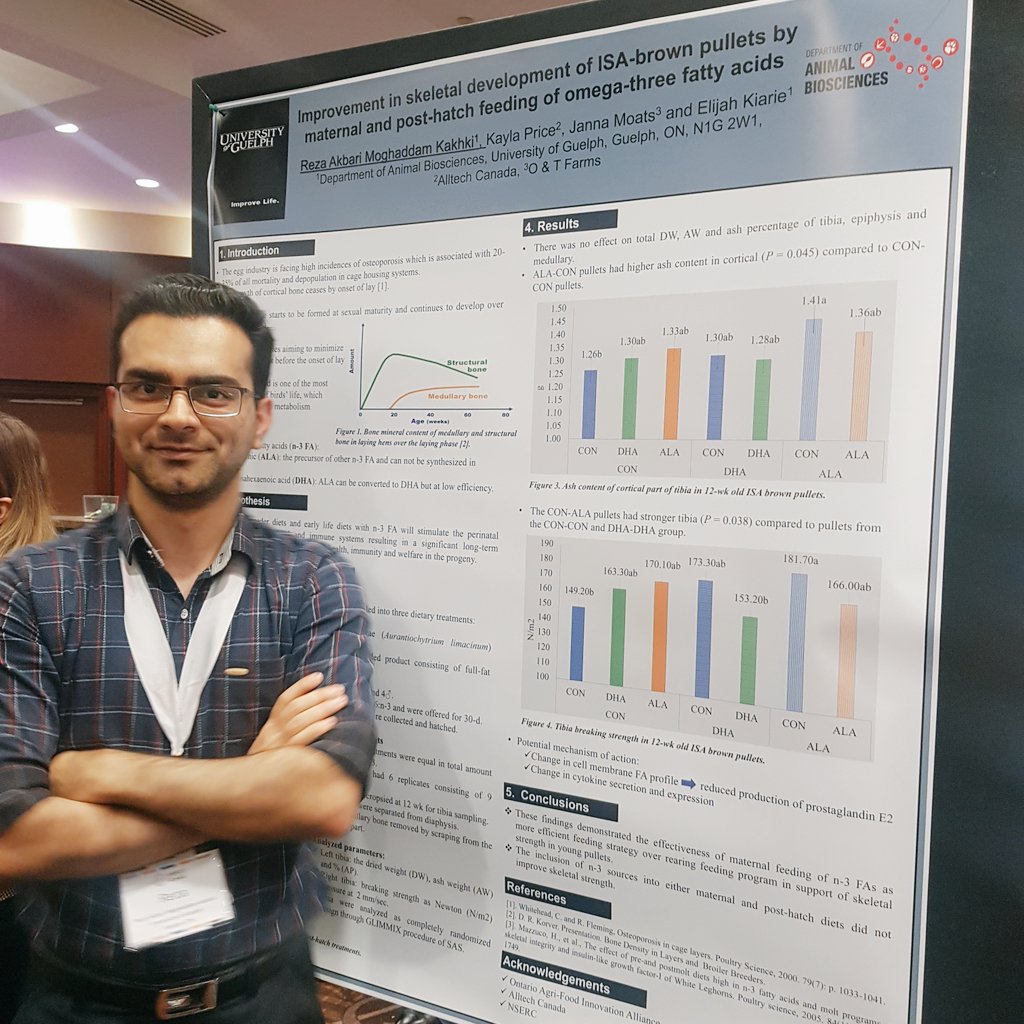June, 2019
Developmental programming has the greatest application potential for modern chicken production to help meet changing and growing global market demands.
The concept of developmental programing refers to the ability of specific exposures during pre- and early life to result in epigenetic changes that may impact the development, health and production potential of the offspring.
For example, the availability of a specific nutrient in chicken feed – such as omega-3 fatty acids – can impact embryonic development and result in profound effects on the production potential and health of the progeny later in life.
Understanding the implications of these exposures will provide a valuable tool towards ensuring sustainability and advancement of the poultry industry.
In collaboration with the University of Guelph, O&T Farms has initiated a series of research projects focused on developmental programming in both broiler and pullet breeding stock which are currently in progress.
The objectives of this extensive research initiative include:
1. Evaluate the effects of feeding linPRO in pullet breeder diets on egg enrichment of omega-3 fatty acids, embryonic and pullet skeletal development, progeny productivity, egg quality and bone health in hens.
2. Evaluate the effects of feeding broiler breeders linPRO during rearing and laying on reproductive performance of breeders and the effects on gastrointestinal development of progeny with or without pathogenic challenges
3. Effects of maternal exposure to omega-3 fatty acids on hormonal dynamics and influence on behavioral development post-hatch

Preliminary data on pullet skeletal development were presented at the Animal Nutrition Conference of Canada (ANCC) in Niagara Falls, Ontario (May 15th, 2019), and suggest that the maternal feeding of linPRO can significantly improve skeletal strength in young pullets by nearly 22% compared to the control.
“The results demonstrated effectiveness of maternal and post-hatch feeding of omega-3 fatty acid in support of skeletal strength in young pullets which can greatly reduce poor egg shell quality and skeletal maladies seen in laying hens across all housing types.” said Dr. Elijah Kiarie, Assistant Professor in Poultry Nutrition at the University of Guelph, and primary investigator for this research.
More data will become available within the year with egg enrichment data, and broiler progeny performance data scheduled for presentation at the 2019 Poultry Science Association Annual Meeting in Montreal, Canada this July.





